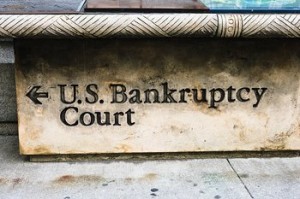Bankruptcy exemptions are able to reduce your bankruptcy risk. Exemptions are the laws that ensure that certain assets of a debtor are protected after they file bankruptcy in order to ensure that they get an adequate “fresh start.” They vary from state to state.
What does “home exempt up to X dollars” mean?
The exemptions are also meant to ensure that solvent debtors with assets aren’t just running away from their financial obligations. So these laws are written so that they only protect up to a certain amount. If your home is exempt up to $20,000, then the bankruptcy court will force you to sell it if your home equity is greater than $20,000.
What is equity?
Equity is your ownership in your property. For example, let’s say that your home is appraised at $200,000. You owe a first mortgage of $100,000 and a second mortgage of $50,000. Your home equity is the difference between the value of the home and what you owe to any creditors who have a voluntary lien on your property.
What would happen if my state’s homestead exemption is $15,000 and my home equity is $100,000?
You would either be forced to file a Chapter 13 bankruptcy (where you pay back the debt with your disposable income for up to 5 years) or you would be forced to sell your home. You would be entitled to $15,000 (your homestead exemption) and you creditors would receive the rest of the proceeds from the sale.
Do I have bankruptcy risk if my home equity is barely more than the homestead exemption?
Since there are costs associated with selling it and you would get the majority of the sales’ proceeds due to your homestead exemption entitlement, it’s unlikely that the court would order the sale.
What are the federal bankruptcy exemptions?
In some states, you have the option of using either your state’s exemption system or the federal government’s exemption system. These states are:
Arkansas
Connecticut
Washington D.C.
Hawaii
Massachusetts
Michigan
Minnesota
New Hampshire
New Jersey
New Mexico
Pennsylvania
Rhode Island
Texas
Vermont
Washington
Wisconsin
These are the federal bankruptcy exemptions:
Married couples filing together may double all the following exemptions. These values are adjusted every three years on April 1st to reflect the current Consumer Price Index.
Real Estate, Auto, Personal Property
-Real property, including co-op or mobile home, or burial plot to $18,450
-Motor vehicle to $2950
-Unused portion of homestead to $9250 applied to any personal property -$975 of any personal property
-Animals, crops, clothing, appliances, books, furnishings, household goods, musical instruments to $475 per item, $9850 total
-Health aids
-Jewelry to $1225
-Lost earnings payments
-Personal injury recoveries to $18,450 (not to include pain and suffering or pecuniary loss)
-Wrongful death recoveries for person depended upon for support
Insurance
-Disability, illness, or unemployment benefits
-Life insurance payments for person you depended upon for support
-Life insurance policy with loan value in accumulated dividends or interest to $9850
-Unmatured life insurance contract, except credit insurance policy
Public Benefits
-Crime victims’ compensation
-Public assistance
-Social Security
-Unemployment compensation
-Veterans’ benefits
-Pensions
-ERISA-qualified benefits needed for support
Tools of Trade
-Implements, books, and tools of trade to $1850
Other
-Alimony, child support needed for support
Which bankruptcy exemption system is better?
-It depends on your assets and what state you live in. A local bankruptcy attorney will best advise you on this situation
What states have the best bankruptcy exemption systems?
-Texas, Florida, South Dakota, Iowa, Oklahoma, and Arkansas are considered highly favorable states for debtors.
What are the federal non-bankruptcy exemptions?
These are protections that help you to minimize your bankruptcy risk available even if and only if you file under your state’s exemptions.
Pensions
-Civil service employees
-Foreign Service employees
-Military Medal of Honor
-Military service employees
-Railroad workers
Public Benefits
-Government employee death and disability benefits
-Longshoremen and harbor workers death and disability benefits
-War risk, hazard, death, or injury compensation death and disability benefits
-Social Security
-Veteran’s benefits
-Judges, U.S. court and judicial center directors, administrative assistants to U.S. Supreme Court Justice survivor’s benefits
-Lighthouse workers survivor’s benefits
-Military service survivor’s benefits
Other
-Indian lands or homestead sales or lease proceeds
-Klamath Indian tribe benefits for Indians residing in Oregon
-Military deposits in savings accounts while on permanent duty outside U.S.
-Military group life insurance
-Railroad workers’ unemployment insurance
-Seamen’s clothing
-Seamen’s wages (while on a voyage) pursuant to written contract
As you can see there are many bankruptcy exemptions that can get quite complicated. It is recommended that if you are seriously considering bankruptcy you speak with a reputable bankruptcy attorney in your area to discuss your situation. If you are not fully ready to file bankruptcy, you can contact us and see if we can help you with a proven alternative that can save you thousands on your unsecured debts while helping you become debt free.






